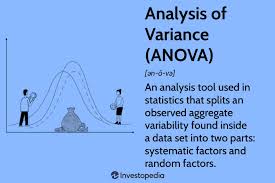Tag: Research General
-

What does ANOVA in Social Media Marketing?
This educational webpage introduces media students to the fundamentals of ANOVA and the t-test, two essential statistical tools for analyzing data in social media marketing. It explains how ANOVA helps compare the effectiveness of different platforms, content types, or influencer strategies
-
Ten Questions on Broadcast Disruption
1. How has streaming affected the revenue models of traditional television broadcasters? 2. What are the key factors influencing audience migration from broadcast TV to streaming services? 3. How do younger audiences (16–34) engage with YouTube compared to traditional television? 4. What strategies are traditional TV production companies adopting to compete with digital content creators?…
-
The Evolution of Sports Media Rights:
Impact on Broadcasting and Streaming PlatformsThe Evolution of Sports Media Rights: Impact on Broadcasting and Streaming Platforms Introduction The sports media landscape is undergoing a significant transformation. Once dominated by traditional broadcast television, the industry is now heavily influenced by the rise of streaming platforms. These services, recognizing the power of live sports in attracting…
-

Loss Aversion in Marketing:
Loss aversion, a cornerstone of behavioral economics, profoundly impacts consumer decision-making in marketing. It describes the tendency for individuals to feel the pain of a loss more strongly than the pleasure of an equivalent gain (Peng, 2025), (Frank, NaN), (Mrkva, 2019). This psychological principle, far from being a niche concept, permeates various aspects of consumer…
-
Defining the Research Problem: The Foundation of Impactful Media Projects
In the dynamic and ever-evolving world of media, where information flows constantly and attention spans dwindle, a well-defined research problem is paramount for impactful scholarship and creative work. It serves as the bedrock of any successful media project, providing clarity, direction, and ultimately, ensuring the relevance and value of the work. Just as a film director meticulously…
-
Live Sports: A Waning Appeal?
Marion Ranchet It’s almost insolent how thriving the sports media industry is with a 2.4% YoY growth of sports media rights value at 56B$ according to SportBusiness Global Media Report 2023. 2024 saw the NBA topping the 76B$ deal value (+165%) for their 2025-2036 rights cycle. Every platform fighting for our daily attention wants a piece of the sports business. Not every…
-
How Streaming Services Are Changing Music
Topics for research at the end of the post Listening to music also means providing data to streaming services. Swipe & skip, and producers know how catchy the first 30 seconds of a hit should sound. Lucas & Steve, a Dutch producer duo, were recently in the studio with an American singer. The trio discussed…
-
Writing a Research Report
A research report is a structured document that presents the findings of a study or investigation. It typically consists of several key parts, each serving a specific purpose in communicating the research process and results. The report begins with a title page, which includes the title of the research, author’s name, and institutional affiliation. Following…
-
Suggestions for Research Areas in Media Research
Radio Podcasts Television Streaming Platforms Social Media Printed Media News Digital Marketing Citations:[1] https://jmseleyon.com/index.php/jms/article/download/687/661[2] https://www.ofcom.org.uk/media-use-and-attitudes/media-habits-adults/top-trends-from-latest-media-nations-research/[3] https://audacyinc.com/insights/new-research-confirms-audio-outperforms-tv-and-digital/[4] https://www.attnseek.com/p/researching-broadcast-media-beyond[5] https://www.pewresearch.org/topic/news-habits-media/news-media-trends/news-platforms-sources/audio-radio-podcasts/[6] https://www.pewresearch.org/journalism/fact-sheet/news-platform-fact-sheet/[7] https://www.dreamcast.in/blog/difference-between-broadcasting-and-social-media/[8] https://journals.sagepub.com/doi/10.1177/17816858231204738
-
Drawing Conclusions (Chapter D10)
Drawing strong conclusions in social research is a crucial skill for first-year students to master. Matthews and Ross (2010) emphasize that a robust conclusion goes beyond merely summarizing findings, instead addressing the critical “So What?” question by elucidating the broader implications of the research within the social context. Key Elements of a Strong Conclusion A…
-
Research Proposals (Chapter B6)
Research proposals play a crucial role in the social sciences, serving as a roadmap for researchers and a tool for gaining approval or funding. Matthews and Ross (2010) emphasize the importance of research proposals in their textbook “Research Methods: A Practical Guide for the Social Sciences,” highlighting their role in outlining the scope, methodology, and…
-
Data Collection (Part C)
Research Methods in Social Research: A Comprehensive Guide to Data Collection Part C of “Research Methods: A Practical Guide for the Social Sciences” by Matthews and Ross focuses on the critical aspect of data collection in social research. This section provides a comprehensive overview of various data collection methods, their applications, and practical considerations for…
-
Research Design (Chapter B3)
Research Methods in Social Research: Choosing the Right Approach The choice of research method in social research is a critical decision that shapes the entire study. Matthews and Ross (2010) emphasize the importance of aligning the research method with the research questions and objectives. They discuss various research methods, including experimental designs, quasi-experimental designs, cross-sectional…
-
Research Questions and Hypothesis (Chapter A4)
Research questions are essential in guiding a research project. They define the purpose and provide a roadmap for the entire research process. Without clear research questions, it’s difficult to determine what data to collect and how to analyze it effectively. There are several types of research questions: Research projects often use multiple types of questions…
-
Reviewing Literature (Chapter B2)
Understanding Literature Reviews in Social Research(Theoretical Framework) A literature review is a crucial part of any social research project. It helps you build a strong foundation for your research by examining what others have already discovered about your topic. Let’s explore why it’s important and how to do it effectively. Why Literature Reviews Matter What…
-
Introduction to Research (Section A)
I’m excited to introduce you to the fascinating world of social science research! Let’s dive into the fundamental concepts that will shape your journey as budding researchers. Unraveling the Mystery of Research Ever wondered what sets research apart from everyday curiosity? It’s all about systematic inquiry and rigorous methods[1]. As you embark on your academic…
-
Immersiveness: Creating Memorable Media Experiences
Media has become an indispensable part of our daily lives, and immersiveness is a key factor that determines the success and popularity of any medium. Immersiveness refers to the extent to which a medium captures and holds the attention of its audience, and makes them feel involved in the story or the experience. According to…
-
Theories Models Concepts
n the field of media studies, theories, models, concepts, and variables are all important concepts that help researchers understand and analyze various phenomena related to media. Theories refer to systematic frameworks that provide explanations for various phenomena in the media industry. These can be broad or specific and help researchers to understand the nature and function…
-
Validity
Validity is a fundamental concept in research, particularly in media studies, which involves analyzing various forms of media, such as film, television, print, and digital media. In media studies, validity refers to the extent to which a research method, data collection tool, or research finding accurately measures what it claims to measure or represents. In…
-
Concepts and Variables
Concepts and variables are two key terms that play a significant role in media studies. While the two terms may appear similar, they serve distinct purposes and meanings. Understanding the differences between concepts and variables is essential for media studies scholars and students. In this blog post, we will explore the distinctions between concepts and…
-
Type I and Type II errors
Type I and Type II errors are two statistical concepts that are highly relevant to the media industry. These errors refer to the mistakes that can be made when interpreting data, which can have significant consequences for media reporting and analysis. Type I error, also known as a false positive, occurs when a researcher or…
-
Transperancy
Transparency in research is a vital aspect of ensuring the validity and credibility of the findings. A transparent research process means that the research methods, data, and results are openly available to the public and can be easily replicated and verified by other researchers. In this section, we will elaborate on the different aspects that…
-
Tip Sheet Research Paper
You may read this TIP Sheet from start to finish before you begin your paper, or skip to the steps that are causing you the most grief. 1. Choosing a topic: Interest, information, and focusYour job will be more pleasant, and you will be more apt to retain information if you choose a topic that…
-
Sampling Error
Sampling error is a statistical concept that occurs when a sample of a population is used to make inferences about the entire population, but the sample doesn’t accurately represent the population. This can happen due to a variety of reasons, such as the sample size being too small or the sampling method being biased. In…
-
Replicabilty
Replicability is a key aspect of scientific research that ensures the validity and reliability of results. In media studies, replicability is particularly important because of the subjective nature of many of the topics studied. This essay will discuss the importance of replicability in research for media students and provide examples of studies that have successfully…
-
Reliability
Reliability is an essential aspect of research, especially in the field of media studies. It refers to the consistency and dependability of research findings, which should be replicable over time and across different contexts. In other words, a reliable study should yield the same results when conducted by different researchers or at different times. Achieving…
-
APA Style
APA 7 style is a comprehensive formatting and citation system widely used in academic and professional writing. This essay will cover key aspects of APA 7, including in-text referencing, reference list formatting, and reporting statistical results, tables, and figures. In-Text Referencing In-text citations in APA 7 style provide brief information about the source directly in…
-
Plagiarism
Even though most student plagiarism is probably unintentional, it is in students’ best interests to become aware that failing to give credit where it is due can have serious consequences. For example, at Butte College, a student caught in even one act of academic dishonesty may face one or more of the following actions by…
-
Inductive versus Deductive
As a media student, you are likely to come across two primary research methods: inductive and deductive research. Both approaches are important in the field of media research and have their own unique advantages and disadvantages. In this essay, we will explore these two methods of research, along with some examples to help you understand…
-
How to use citations in your research
According to Jenkins (2006), “convergence culture represents a shift in the relations between media and culture, as consumers take control of the flow of media” (p. 2). In her book The Presentation of Self in Everyday Life, Goffman (1959) discusses the ways in which individuals present themselves to others in social interactions. As Jenkins (2006)…
-
First Step
As a student, you may be required to conduct research for a project, paper, or presentation. Research is a vital skill that can help you understand a topic more deeply, develop critical thinking skills, and support your arguments with evidence. Here are some basics of research that every student should know. What is research? Research…
-
Theories, Models and Concepts
Theories, Models, and Concepts in Media and Marketing In the realm of media and marketing, understanding theories, models, and concepts is crucial for developing effective strategies. These constructs provide a framework for analyzing consumer behavior, crafting strategies, and implementing marketing campaigns. This essay will explore each construct with examples to illustrate their application. Theories Definition:…
-
Introduction into Statistics ( Chapter 2 and 3)
Howitt and Cramer Chapter 2 and 3Variables, concepts, and models form the foundation of scientific research, providing researchers with the tools to investigate complex phenomena and draw meaningful conclusions. This essay will explore these elements and their interrelationships, as well as discuss levels of measurement and the role of statistics in research. Concepts and Variables…
-
Check List Survey
Alignment with Research Objectives Question Relevance and Specificity Comprehensiveness Logical Flow and Structure Data Quality and Usability Respondent Engagement Clarity and Comprehension Bias Mitigation Measurement Precision Validity Checks Adaptability and Flexibility Actionability of Results Ethical Considerations
-
How to Create a Survey
What is a great survey? A great online survey provides you with clear, reliable, actionable insight to inform your decision-making. Great surveys have higher response rates, higher quality data and are easy to fill out. Follow these 10 tips to create great surveys, improve the response rate of your survey, and improve the quality of the data…
-
Univariate Analysis: Understanding Measures of Central Tendency and Dispersion
Univariate analysis is a statistical method that focuses on analyzing one variable at a time. In this type of analysis, we try to understand the characteristics of a single variable by using various statistical techniques. The main objective of univariate analysis is to get a comprehensive understanding of a single variable, its distribution, and its…
-
Methods of Conducting Quantitative Research
Quantitative research is a type of research that uses numerical data and statistical analysis to understand and explain phenomena. It is a systematic and objective method of collecting, analyzing, and interpreting data to answer research questions and test hypotheses. The following are some of the commonly used methods for conducting quantitative research: It is important…
-
Developing a Hypothesis
A hypothesis is a statement that predicts the relationship between two or more variables. It is a crucial step in the scientific process, as it sets the direction for further investigation and helps researchers to determine whether their assumptions and predictions are supported by evidence. In this blog post, we will discuss the steps involved…
-
Links to AI tools
Overview AI Tools in usability for Researchers Elicit Purpose and Functionality Literature Search: Quickly locates papers on a given research topic, even without perfect keyword matching. Litmaps Visual Literature Mapping Search and Discovery Paper Digest Paper Digest is an AI-powered scholarly assistant designed to help researchers, students, and professionals navigate and analyze academic research more…
